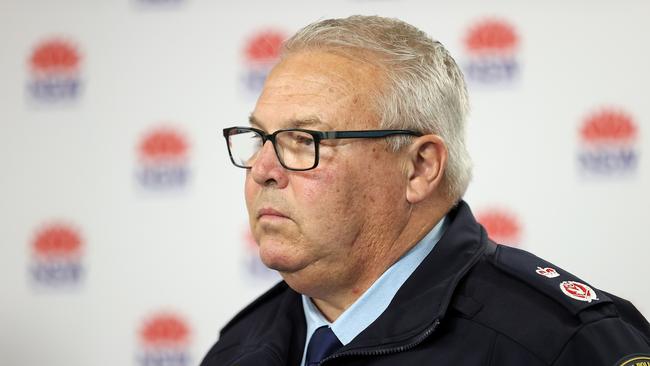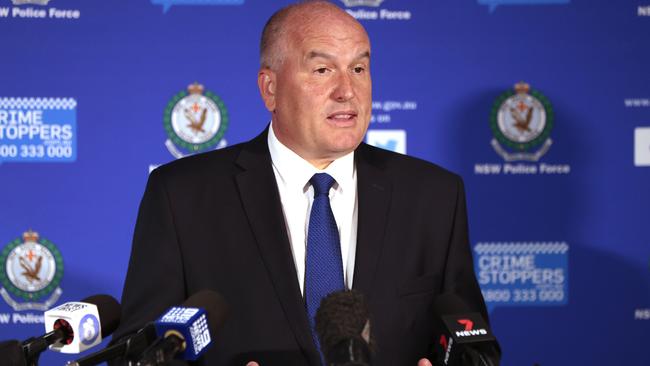NSW Police to expand successful intervention plan for repeat offenders
The only way to get off the police Suspect Target Management Plan blacklist is to die, go to jail or stop offending - and more people are not reoffending.
Police & Courts
Don't miss out on the headlines from Police & Courts. Followed categories will be added to My News.
Police are going to be knocking on the doors of more high-risk offenders after a study found their intervention had reduced reoffending by up to 43 per cent.
The Suspect Target Management Plan (STMP) blacklist targets serious habitual recidivist offenders and the only way to get off the list is to die, go to jail or stop offending.
Officers persist in monitoring offenders on the list, ensuring they’re at home or work and complying with any relevant conditions.
As well as ensuring they’re abiding by the law, they also check on their welfare and assist in securing mental health services if needed.

MORE NEWS
Telling women what to wear could become a crime in NSW
PM distances himself from embattled NSW Premier
‘Dodgy lawyers and IT professionals are enabling criminal thugs’
A study released by the NSW Bureau of Crime Statistics and Research has found the
persistence is working.
Among the 11,000 people who have been on the list, there was a 16 per cent reduction in the likelihood of a new violent or property crime in the first 12 months and a 43 per cent drop in domestic violence perpetrators re-offending in that time.
“It is good for victims of crime and it is about positive changes to people’s lives,” Acting Commissioner of Police, Gary Worboys, said.
“People need to be mindful that this is about people who are committing serious offences. They are offences that people lose sleep over with their home broken into or having their car stolen.”
It is the first study of how the scheme is working since it was introduced in 2002 with the aim of disrupting and preventing crimes such as repeat break-ins, robbery offences and domestic violence by singling offenders out for proactive attention including being repeatedly detained and searched.
The Daily Telegraph revealed last year that the blacklist had included a nine-year-old, as well 10, 11 and 12 year olds but Acting Commissioner Worboys said the program targeted offenders of all ages. Since 2017, the number of children on the list aged under 14 went from 23 to one.
The STMP is now being expanded to concentrate more on referrals to crime diversion programs to deal with mental health, drug and alcohol problems or economic deprivation on top of the compliance checks and intelligence gathering. Young people are being referred to programs like the Police and Community Youth Club.

BOCSAR found that police were correctly identifying individuals at a high risk of offending and once on the STMP, their risk of offending dropped “dramatically” through deterrence.
“There are kids who have had a real hatred of police who are now training with them every second day and having breakfast with them,” Acting Commissioner Worboys said.
BOCSAR tracked the 10,667 offenders who had been on the list since 2002 and another 1534 domestic violence offenders.
Police Minister Police David Elliott said the results “placed the STMP program as a world leading crime prevention by deterrence initiative”.
